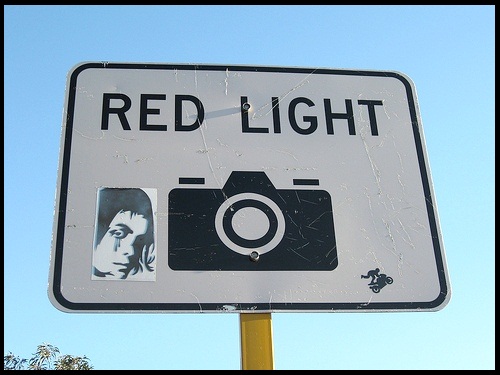
Flickr image courtesy Purple Wyrm
Welcome to another edition of Security Digest, folks. We try hard here to deliver news updates that haven’t mostly been pounded out elsewhere (no shortage of examples). There’s still plenty of amazing material for us to work with, week in and week out. Case in point: An intriguing counterterrorism story from Japan that’s received little attention so far in the states.
One of Japan’s largest newspapers reported Nov. 2 that authorities there accidentally leaked highly sensitive information onto the Internet, including the names of people who have cooperated in anti-terrorism investigations, requests for help from the FBI, security procedures used during a major global summit and more.
According to the daily Asahi Shimbun, bank account information for people associated with foreign embassies in Japan was also vulnerable:
Sources at Tokyo’s Metropolitan Police Department said officials suspect the highly confidential information was included in more than 100 documents leaked through file-sharing software. They are studying the contents of the leaked documents while questioning officers involved to determine how the information got out.
Another major city in the United States is turning its back on the use of public safety surveillance devices. This time, voters in Houston killed a network of red-light cameras, which officials argue are critical for nabbing traffic violators and controlling unsafe driving. The cameras have generated hundreds of thousands of tickets and enabled the city of Houston to collect $44 million in fines over four years.
As we’ve written before, Arizona’s Department of Public Safety abandoned its use of traffic cameras after angry residents covered them with boxes and Post-it notes, destroyed them with axes and wore masks to stymie attempts at driver identification.
Potential health risks from full-body X-ray scanners now being used in airports across the country to stop terrorists from hiding explosives are “extremely small,” says the Food and Drug Administration. A group of scientists publicly expressed concern earlier this year about how radiation emissions from the imagers could impact seniors, children and women prone to breast cancer.
Experts continue to complain about the overwhelming array of congressional committees and subcommittees that have jurisdiction over homeland security spending and policy in Washington. The conservative Heritage Foundation on Nov. 4 called upon lawmakers to reform the massive web of overseers in Congress that leads senior homeland security officials to spend much of their time testifying on Capitol Hill rather than protecting the nation from terrorists and natural disasters:
Homeland security oversight is both proper and necessary. … [But] this debilitating proliferation of congressional review has significant adverse effects on national security. It frustrates the ability of Congress to provide guidance on how the homeland security enterprise should operate while draining precious departmental resources.
A California group representing small companies that do business with the government is suing the Department of Homeland Security to make public records describing its costly border surveillance program, SBInet. Information DHS officials have so far refused to release in documents may prove bureaucrats tried to ignore rules requiring that a portion of government contracts be awarded to small businesses, according to the American Small Business League.
The group says it has won similar cases before and that Washington is continually granting “small business” contracts to major defense firms such as Northrop Grumman and Lockheed Martin.

